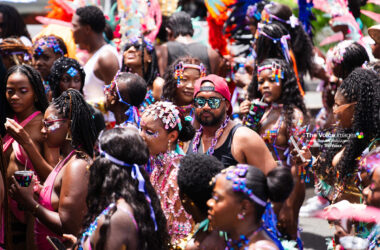THERE is no limit to the deleterious effects citizens can face when lawlessness becomes the norm in their countries. Across the world, there seems to be no end in sight to the multitude of injustices meted out to the masses whose voices somehow get lost in the mad rush for power by those who hold the reins to their futures and whether they live or die.
The recent revelation that modern-day slavery is still a thriving business in Libya might come as no surprise to many. Nevertheless, that shameless act speaks volumes for an African continent whose people are still made to face the social, psychological, economic and political brunt of the vestiges of a time when slavery was indeed legal.
That migrants fleeing their African homelands in pursuit of greener pastures can find themselves being on the auction block in Libya for as much as $400 in the 21st century is no less than appalling, inexcusable and worrying. What is worse, however, is that international aid agencies have indicated that had it not been for the recent CNN investigation that revealed smugglers selling nearly a dozen men in Libya’s capital, Tripoli, the world might not have had evidence that the slave trade there was so alive and brazen.
A key hub for continental African migrants seeking passage to Europe by sea, the Libya connection poses a deadly dilemma for those willing to take the risk. According to the International Organization for Migration (IOM), the United Nation’s migration agency, an estimated 150,000 people have crossed the Mediterranean Sea from Libya in each of the past three years. Unfortunately, in each of the past four years, nearly 3,000 have died attempting to do so.
In Libya, stability has been a work in progress since the fall of former president, Muammar Gaddafi, in 2011, after leading the country since 1969. As such, tribalism is rife as various groups continue their talks towards arriving at a final solution in terms of governance.
Even at the risk of dehumanizing detention and a drowning death, it seems that people are not afraid to take chances they envisage would redound to them having a better life somewhere else but where they originate. But while a refugee crisis would not be illegal under the rules of social justice, selling people into bondage is not.
The recent situation in Libya has since been highly condemned by the international community, many of whom say that the crime against humanity in Libya needs to cease. Somewhat hypocritical, though, because right now in Syria, Yemen, Myanmar and the State of Palestine there are crimes against humanity being carried out with impunity while geopolitics continue to take precedence over people. Even in the United States, black people continue to see a rolling back of policies and programmes aimed at bridging the social divide.
Saint Lucia, which is an ally of Libya, has since denounced the latest instance of modern-day slavery caught on the CNN video in Libya, with Minister for Home Affairs, Justice and National Security, Hermangild Francis, describing the incident as “quite abhorrent”.
On December 10 this year, the world observed Human Rights Day under the theme, “Stand Up 4 Human Rights”. While it is incumbent on everyone everywhere to work towards that goal, Libya needs to do its part in ensuring that one of the greatest atrocities in the history of mankind – slavery – no longer takes root on its soil. With its image now being shamed, it should also work with other countries in ensuring that hapless refugees are not turned into modern-d ay slaves.














